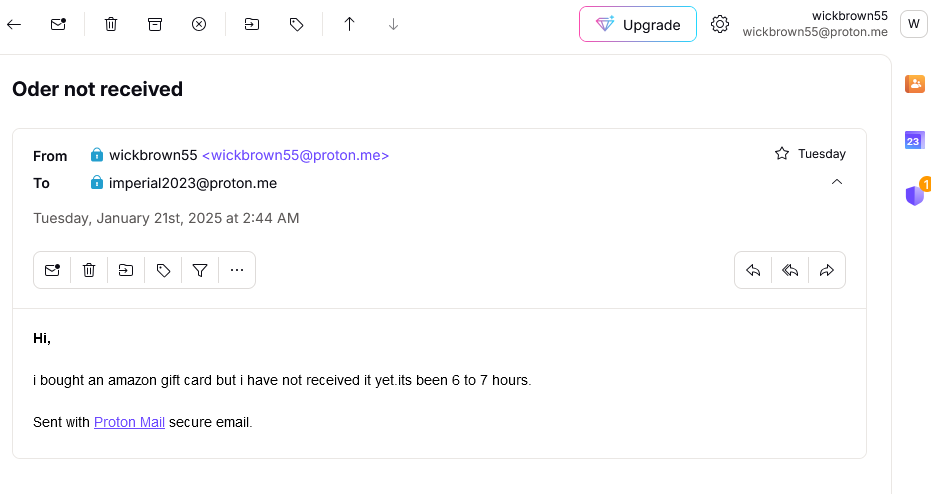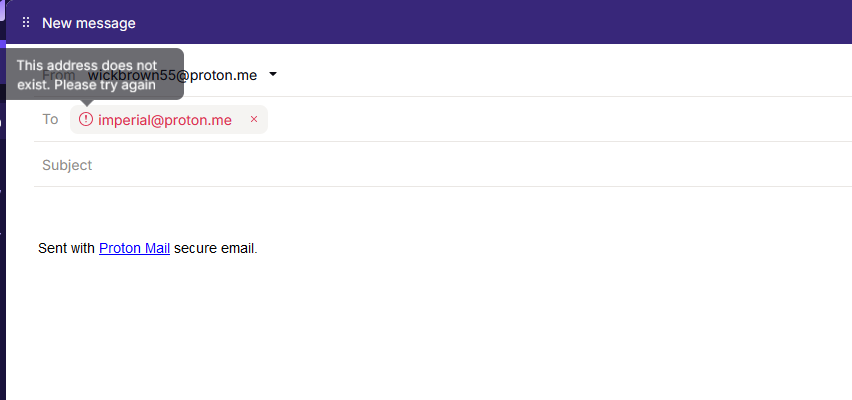Table of Contents
ToggleImperial Market – TOR Scam Report (158)
Onion Link : http://imperialk4trdzxnpogppugbugvtce3yif62zsuyd2ag5y3fztlurwyd.onion
Scam Report Date : 2025-01-25
Client Scam Report Breakdown
Original Scam Report :
The client reports falling victim to a scam after purchasing an Amazon gift card from an unnamed website. Despite completing the transaction, they never received the digital gift card via email. When they attempted to contact the company using the customer support email listed on the website, they discovered that the email address did not exist. Further attempts to reach out through the email address associated with the order confirmation also went unanswered. The victim also noted that advertisements for the fraudulent website were displayed on Tor66 and Torch, two darknet search engines. In their report, they request that the website be added to a scam list to prevent others from experiencing the same fraud.
Photos :





Defining Key Terminology and Scam Tactics
This case exemplifies a non-delivery scam, a common form of fraud where a seller takes payment but never delivers the promised product. In this scenario, the scam involves a fake digital goods sale, where the website claims to sell Amazon gift cards but never provides the actual codes. The fraudulent website also employs a fake contact information tactic, listing a non-existent email address to create the illusion of customer support. The victim’s attempt to contact the company through the order confirmation email was met with email non-responsiveness, a strategy used by scammers to ignore refund requests and prevent victims from seeking resolution. The scam site’s advertisements appearing on Tor66 and Torch indicate that it is targeting darknet users, a common practice among fraudulent vendors who exploit the anonymity of these platforms. Disposable scam sites like this often operate for a short period before disappearing, making it difficult for victims to take action.
Lessons Learned and Scam Prevention Strategies
This report highlights the importance of verifying online sellers before making purchases, especially when dealing with digital goods. To avoid similar scams, buyers should check whether a website has verified reviews from trusted sources rather than relying on testimonials that may be fabricated. A key protective measure is to test a seller with a small transaction before making a larger purchase, ensuring that they deliver as promised. Additionally, if a website provides inconsistent or suspicious contact information, such as multiple or invalid email addresses, this should be a red flag. It is also advisable to be cautious of ads on darknet search engines, as many of these platforms lack proper moderation and allow scam sites to advertise freely. Finally, users who fall victim to these scams should report fraudulent websites to online fraud databases and forums, helping others avoid similar financial losses. By staying informed and practicing due diligence, buyers can reduce the risk of falling victim to such schemes.






